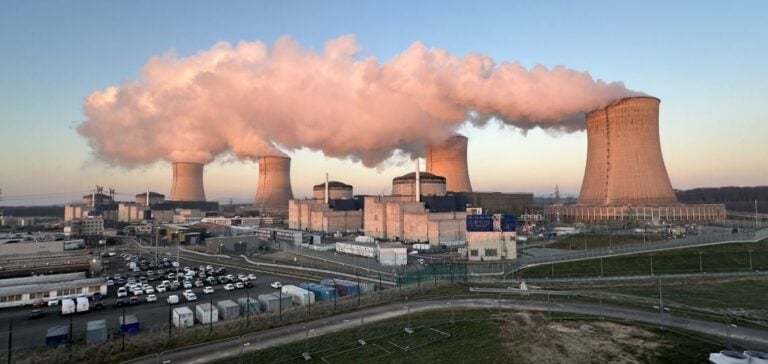France Negotiates with Kazakhstan to Build a Nuclear Power Plant
Kazakhstan, the world’s largest producer of natural uranium, has confirmed ongoing negotiations with France to establish the country’s first nuclear power plant. These discussions are part of a broader collaboration in civil nuclear energy, initiated following a recent proposal from French President Emmanuel Macron.
Talks held in Paris from December 4 to 6 brought together representatives from Electricité de France (EDF), its subsidiary Framatome, and Arabelle Solutions, a key supplier of turbines for nuclear reactors. A statement from Kazakhstan’s Ministry of Energy specified that the Kazakh delegation visited several French facilities, including the Institute for Radiological Protection and Nuclear Safety (IRSN).
A Strategic Project
The decision to construct a nuclear power plant stems from Kazakhstan’s growing need to address an electricity shortfall despite its abundant uranium resources. The country, which supplies 43% of the world’s uranium, sees this project as a solution to stabilize energy production while reducing its environmental impact.
The future plant, whose site was approved through a referendum, will be located near the village of Ulken on the shores of Lake Balkhash. This project is expected to significantly advance Kazakhstan’s energy strategy while drawing attention from major global nuclear powers.
Fierce Competition
The Kazakh project has also attracted interest from Russia, through its state-owned company Rosatom, as well as from China and South Korea. These nations aim to strengthen their strategic presence in Central Asia, a region historically influenced by Moscow. Russian President Vladimir Putin recently discussed the matter with his Kazakh counterpart Kassym-Jomart Tokayev, highlighting Russia’s ambitions in this field.
Meanwhile, China continues to assert its influence in the region with various energy projects, while South Korea relies on its technological expertise to position itself as a partner of choice.






















